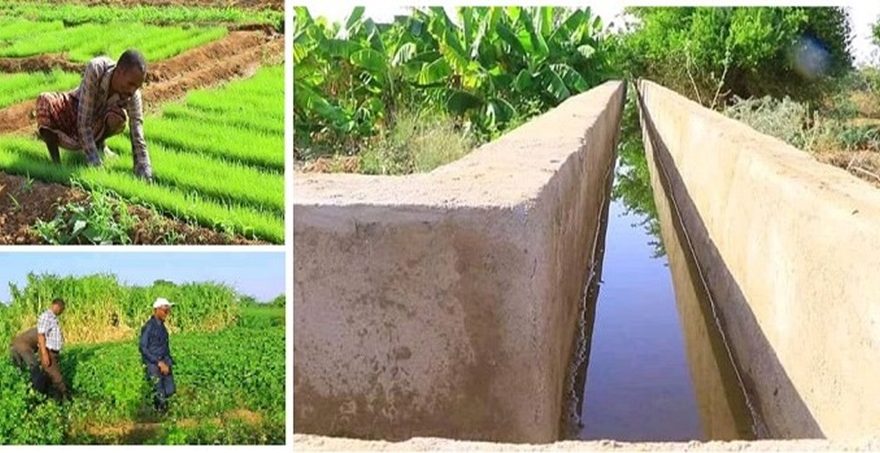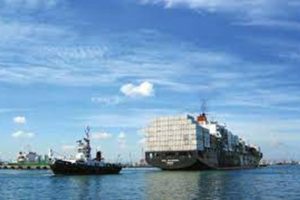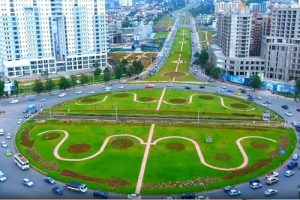
The Ethiopian government is registering encouraging results in its efforts to increase productivity to achieve self-sufficiency in food thereby avoiding importation. Thus, in addition to increasing the yield and productivity from autumn and main harvest season, the ongoing summer irrigated wheat cultivation has created an opportunity to supply wheat to the foreign market on top of meeting the national demand.
The cultivation of crops is expanding even in the regions where pastoralists live. In these regions, the cultivation of wheat and rice as well as vegetables and fruits is being done on a large scale, which is starting to change the lives of the pastoralists.
People of the Somali region, who are pastoralists and engaged in business, can be mentioned as an example here. Meaningful work is being done by making irrigation development a new work culture in the region.
West Gode Irrigation Development Project is located in Shebele Zone of the region. Seven of the zone’s 10 districts are bordered with Wabe Shebele River. Berhano is among the seven districts that has plain landscape and fertile soil suitable for agriculture. Though it has lived close to the River for centuries, it has made zero use of it.
In recent years, however, following the government’s attention to irrigation development, the desert plains and fertile land have started to live in harmony with the Wabe Shebele River. Today, this flat land that is hard to see its end has been resplendent and has a new natural look. From garden vegetables to various crops are grown in it.
Another interesting thing is that it is not only water that flows in the canal built for irrigation. There is another food item that follows in the water, fish. This fish has become another blessing for the environment. The fish has become their daily food, especially for the people who earn their lives as laborers in the fields.
It is not difficult to understand how easy life has become in the West Gode Irrigation Development Project for those who saw these workers throwing their hooks and pulling out fish without much effort or fatigue. The actual meaning of “Yelemat Tirufat” has been seen in practice.
Abdulhakim Ismail is an investor who is engaged in planting rice and taking care of 50 hectares of land he invested organized in Soyal Cooperative Association. He stated that he spent his life in exile in Europe due to the pressure that was put on him by the previous government.
He returned to his country and enjoyed the peace found in the region that enabled him engage in irrigation development. The rice sprouts planted on half of the 50 hectares of the local investment farm have started to turn green. He has prepared the rest of the land for the same purpose.
Abdullahi said that if the local government gives him more land, he has the capacity to cultivate. When investing in the agricultural sector, he doesn’t just think of profit. But to be a role model that the pastoralists have a talent of leading life in other sector apart from animal husbandry.
He is proud for being a pioneer for the pastoralists on the banks of the Shebele River which will make the Somali region famous for rice production.
As he said, West Gode Irrigation Development Project diverted the River’s water and made it ready for irrigation, which has created a favorable environment for him and other residents to engage in irrigation development. The project’s provision of tractors, best seeds, medicine and monitoring and support services made them more motivated for the work. Since the reform, peace prevailed in Somali region allowed him and his friends to come back from exile and work on development projects.
“Somali region has never had peace in any regime,” Abdulhakim said and adding; “Peace is the basis for the development and progress of the country in order to do everything we plan to be successful, to move freely from place to place. The peace that has now prevailed in the Somali region has greatly benefited the Somali people. Everyone should stand by the government so that the entire nation can benefit from peace.”
“With peace in the region, it has opened the door for us, the local natives who were living in exile, to enter our country and participate in development work; I expect that others will look at us and enter their country and participate in development work. I thank Allah for showing me such a time. I thank the government for everything it has done to maintain peace in the region,” he said.
Alkeherat Co-operative association is another one that is found working on land for the project. It is also cultivating rice. The representative of the association, Muhammad Noor Sheikh said that the association has taken over 25 hectares of land from the project and is producing various crops and marketing them.
Now, the association has planted rice for the first time. After it was confirmed by the research center that rice can be grown, it planted rice on the 25 hectares of land provided without hesitation. Currently, the rice is at the bud stage.
Mentioning that rice is a crop that ripens in three months, he said after harvest, the land is ready to use for another purpose.
Muhammad added; “It is common to use rice for food in the Somali region. If it can be produced here in the future, it will save foreign currency cost paid to import the product. It will also allow the local farmers to gradually get familiar of rice production.”
As explained by Engineer Abduwahid Muhidin, West Bank Irrigation Development Project Manager; the government studied the preference of the district for irrigation development and built the “West Gode Irrigation Development Project” and opened it to users in 2024. The project covers a total of 7,600 hectares; currently, only two thousand hectares are being cultivated.
Summer wheat, corn, sorghum, and sesame have been cultivated since the irrigation project was put into service. Onions and types of grass that are used for animal fodder that meet the needs of pastoralists are also planted.
With the support of the project and the participation of investors, for the first time, a plan to produce rice on 800 hectares of land has been put into operation. Research conducted earlier has shown encouraging results.
Gode Irrigation Development Project has established its own research station in the same project with the support from the Regional Agricultural Research Center. Therefore, nothing is sown or planted without its effectiveness being tested.
Mentioning that most of the residents of Berhano district lead a pastoral life, Engineer Abduwahid said that after the irrigation project started, they have been cultivating corn, sesame and onions and practicing farming. They will be supported to develop rice production experience through technology transfer.
He recalled that before the West Gode Irrigation Development Project came into operation, products such as onions and tomatoes were brought to the local residents from Oromia and the southern regions, but now, a new history is being made by marketing the products produced by the project even to Addis Ababa.
There is a plan to produce rice on three thousand hectares of land in the region until the next harvest season. Out of this, 800 hectares of land are planned to be covered with rice in Berhano district alone. Currently, 400 hectares and after the next three months, another 400 hectares of land is planned to be covered with rice seeds.
Regarding the land allotment system, he stated that those who want to work in the irrigation development will be given land according to their capacity if they are first organized and meet the necessary conditions. Their effectiveness will be measured and more supplies will be given to them. In order to get the land they want, they are required to work on a small piece of land first. The reason for following this procedure is because it is desired that the land need not be freeze.
They will get inputs from the project, such as the best seeds, tractors, herbicides and pesticides. They will also be provided with professional support and supervision. All that is expected from them will be to complete the workforce and get to work.
The irrigation development is more than just a new work culture for the local community; it is inviting investors to the irrigation. Job opportunities have been created for the region and many people from different parts of the country from farm preparation to harvest.
Regarding the agricultural work of the region, Mustafe Mohammed, President of Somali Region explained that for the first time in the region, three thousand hectares of land has been started to grow rice. Out of the 11 zones in the region, Shebele and City zones have been identified as preferred for rice production.
The head of the State mentioned that these zones have high water potential and fertile land and they are suitable for rice production. They are striving to make the food self-sufficiency program a reality with the produce using the resources of the area.
BY BACHA ZEWDIE
The Ethiopian Herald June 13/2024





